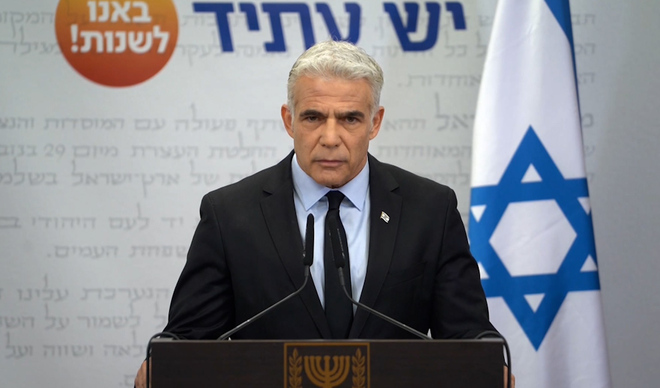After revealing “a series of attempted Iranian terrorist attacks against Israelis on vacation in Istanbul”, Israel’s Foreign Minister, Yair Lapid, has made a dramatic and unusual public appeal to its citizens: “Do not travel to Istanbul and, unless you have no essential need, do not travel to Turkey at all. If you are already in Istanbul, please return to Israel as soon as possible.”
“The terrorist attacks have targeted Israelis who went on vacation. They have intentionally chosen Israeli citizens to kidnap or kill them. It can happen to anyone. It is a real and immediate danger,” Lapid warned Monday shortly before The Anti-Terrorism Commission, belonging to the Israeli National Security Council, will raise the travel warning for Istanbul to level 4, the highest risk.
In this way, the Israeli fear of imminent attacks by the Revolutionary Guard in response to the death of several high-ranking commanders in actions attributed to the Mossad in Iran in the last month is made official and public. Hours before Lapid’s intervention, the Israeli media reported the arrest of several Iranians suspected of trying to kidnap Israeli tourists last month in Turkey.
“Turkey and Israel cooperate to prevent Iranian terrorists from attacking Israelis. The threat is immediate, so we ask them to leave Istanbul,” security sources told EL MUNDO after the Mossad contributed to thwarting attacks in the last year against Israeli tourists, diplomats or businessmen in Turkey, Cyprus, Thailand, Colombia and Kenya.
“In recent weeks, the Israeli security services, Foreign Affairs and the Prime Minister’s office have made an enormous effort to save Israeli lives, some of whom have returned to Israel and walk among us without knowing that their lives were saved,” Lapid has declared that he has thanked the Government of Ankara for its cooperation and the “efforts they are making to protect the lives of Israeli citizens”.
Despite the economic effects, the Turkish authorities have understood Lapid’s appeal, of which they were notified in advance, according to Israeli sources. Bilateral diplomatic relations have improved substantially after a decade of high bilateral tensions and clashes between the Israeli leadership and Turkish President Recep Tayyip Erdogan, especially over the Israeli-Palestinian conflict. Something that contributes, although it is not the main reason, to Istanbul being the fifth most popular destination among Israeli tourists today.
Lapid’s request comes as demand to travel abroad has skyrocketed after two years under the coronavirus. “We hope and believe that this warning will not be long-term. This is the tourist season, and everything will be done to provide security in a short period of time that allows Israelis to return to Turkey and enjoy everything it has to offer.” offer”, Lapid pointed out in the Knesset before concluding: “I also want to send a message to the Iranians: whoever harms the Israelis will pay. We will find them, wherever they are”.
Israel has made no official and direct comment on the assassination of several senior Revolutionary Guards officers, engineers and scientists linked to the nuclear program and the development of ballistic missiles and unmanned vehicles. Actions that included the explosion of several drones on May 25 in the armored military complex of Parchin, associated with the nuclear project and located on the outskirts of Tehran.
The Israeli silence has had two exceptions through leaks to ‘The New York Times’. Citing intelligence sources, the newspaper has revealed that Israel reportedly informed the US that it was behind the action of two motorcyclists who shot Colonel Hassan Sayad Jodai on May 23 in Tehran. According to Israel, Jodai was the number two of the secret unit 840 of the Revolutionary Guard dedicated to carrying out attacks, especially against Israelis, in the world. His assassination would be a warning message from Mossad to Iran to put an end to its plans to attack Israelis.
The second exception has been to deny any connection between Israel and the mysterious death of Colonel Ali Esmailzadeh who fell – or was thrown – from the balcony of his home on May 30 in Iran. According to the media opposed to the Iranian regime, ‘Iran International’, he was assassinated by the Revolutionary Guard on suspicion that he collaborated in the plan to end Jodai’s life.
In mid-February, Iran sent two drones carrying explosives against targets in Israel but they were intercepted by US fighter jets in Iraq. It was one more response by Iran to various sabotage actions by Mossad against its nuclear plan and to the numerous Israeli air strikes against its militias in Syria in an increasingly less covert war.
Conforms to The Trust Project criteria








